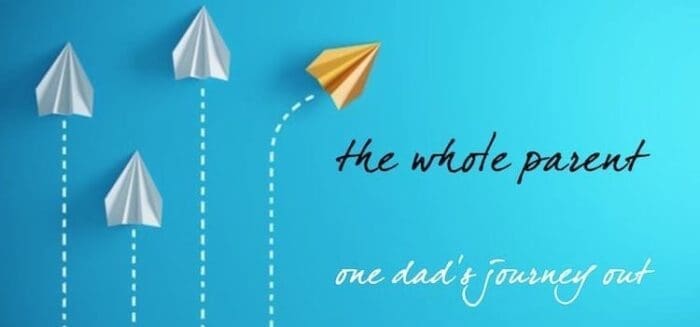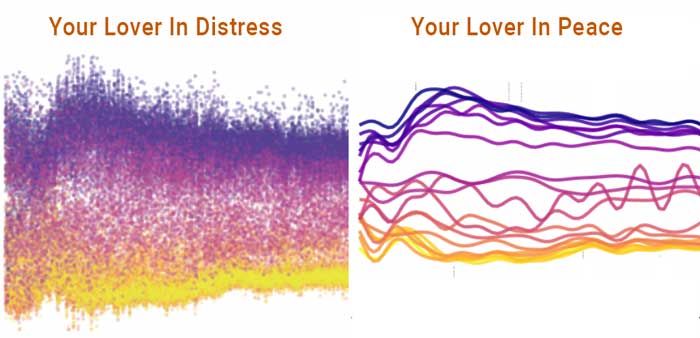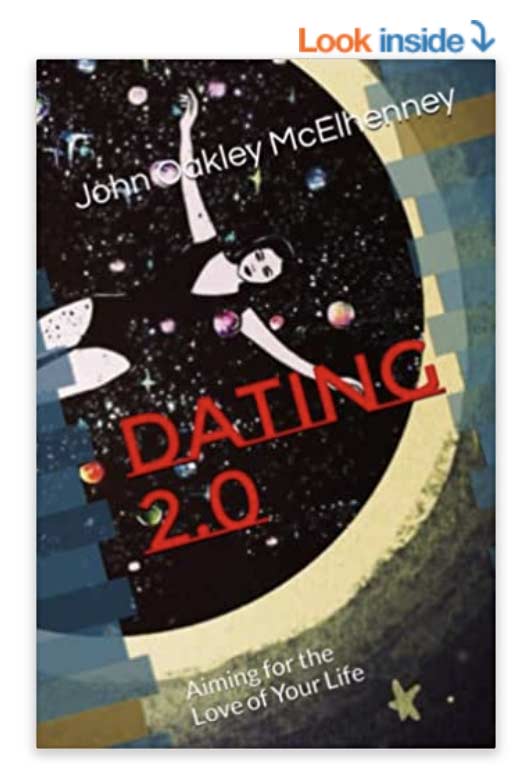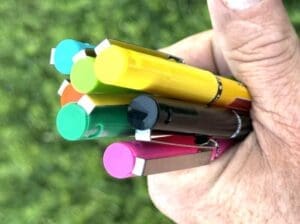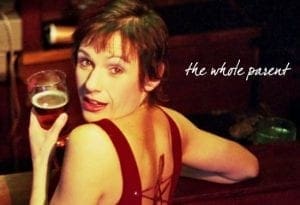These are the words we need to hear when we are in distress.
“I am here for you.”
“You are enough. You’ve got this.”
“If you ask for my help, I will do the best I can.”
“You’re distress is not mine.”
“I love you, right now, just as you are.”
How do you stand beside your partner, when they are going through a rough patch? Can you be supportive without needing to rush in with a fix, or an opinion, or advice? Over time, I’ve learned a number of things about keeping good boundaries even in loving relationships.
- I cannot fix you.
- Your pain is not my pain.
- Your pain (unless you tell me) is not about me.
- My reaction to your pain and distress is my own.
- I can contain my own pain and my own distress, and remain present for you.
- I will stand beside you, loving you, even as you pass through something difficult.
- You can handle this. I am beside you.
But, It’s Hard To Contain Myself
I want to offer my answers. I want to offer more than my hugs and hand-holding. I want to protect you. I want to avenge all the assholes who have treated you poorly. I want to be your champion. And, I can do none of these things with direct action. By my understanding (and Brené Brown’s guidance) I am bravest when I can remain beside you and offer only what you ask for.
So in the world of healthy boundaries, I do not offer unsolicited advice. EVER! This is a big one, and a hard one. When someone we love expresses anger, regret, or sadness, it’s so hard not to rush in with our ideas of what might help. But, it is not what they are asking for. It is not what they need. They simply want to be heard and held in their frustration and pain.
When I step into the “helpful” partner mode, I am doing a disservice to myself and my lover. I am not “our” relationship coach. In fact, I don’t want to coach my partner, ever. (Well, that’s a bit of a stretch, but I only want to offer ideas when she’s asking for my advice.) Advice is only welcome when it is requested. If your partner does not explicitly ask for your advice or opinion, simply do not offer it.
Braving Next To Your Lover
I’m a big proponent of BRAVING. And I am also a big fan of Al-Anon, the program for those of us who love a person struggling with addiction of any kind. What we learn in the first Al-Anon meeting we attend is this: our issue is not about the alcoholic in our lives, our issue is about our reaction and relationship to that alcoholic/addict/abuser. We can only take care of what is on our plate. We cannot take care of our partners, no matter what they are struggling with.
One of the most sacred tenants of Al-Anon and AA is WE DON’T GIVE ADVICE. We understand that we know very little about another person’s struggle. Yes, we’ve struggled too. Yes, we’ve had our share of addictions and downfalls. And still… We have no idea what another person is really struggling with. Better to offer an ear and a hug than a solution, based on OUR EXPERIENCE. This is not about us. Al-Anon teaches us that the relationship to a suffering person is about US and not THEM.
Letting Go of My Lover’s Pain
I cannot hold your pain. I can hold you. I can love and support you, when you are going through pain. What I cannot do, what I should never do, is rush in with my opinion, my experience, my solution, my ideas. That’s not the point. That’s the wrong way to support your partner.
Two strong boundaries I have learned from my years in Al-Anon:
- Do not take someone else’s inventory
- Do not offer advice
Most of us could use some better boundaries when it comes to our partner’s struggles or pain. Like a parent wanting to soothe their child during a fever, we think we have an idea of how to help. WE HAVE NO IDEA. Their experience does not match ours. Our experience, and our trauma, and what comes up for us when our partners are struggling, is OUR TRAUMA, not theirs. Why would we give advice from our understanding of our own trauma?
Reason Things Out With Someone Else
This is what fellowship is all about in Al-Anon and AA. Talk to someone about what you’re struggling with. Ask for help. Talking and breaking isolation is one of the cornerstones of recovery from any disease or addiction. And then, as a friend in the program, I’m going to be quiet. I’m going to contain my urge to give you the answer. MY imaginary answer to YOUR problem. OOPS. You see the problem, right?
I cannot know, fully understand, what my partner is going through. I think I know. I think I have good advice. But I’m basing my advice on the false assumptions;
a. that they want my advice
b. that my solution would work for them
c. that I know better than they do
What we need is empathy (I hear you) and support (I am here for you). What we don’t need is, “Here’s what I think you should do…” Never.
In the case where your partner or friend says, “Yes, please, give me your advice,” tread cautiously. In recovery, we often refrain from advice-giving even when it is requested. Instead, we look to the literature of the program, the steps, the sponsor relationship. I cannot fix you. I cannot truly know the problems you are dealing with. I can guess at your pain by comparing it to my own, but that does not reveal anything except the connection to my own pain.
When we give advice, often we are saying what WE NEED TO HEAR about OUR TRAUMA. This is not meant for the other person. We think it is. We are doing the best we can, but…
The best advice is to keep advice to yourself. You simply don’t have enough understanding to give an opinion. There are professionals who can help with that type of advice. And you are not being asked to coach or counsel this person. In a relationship, you are being asked to LISTEN and BE PRESENT. That’s it. You don’t have a solution, so you don’t offer one. You don’t know what’s best for your partner. You might think you do, but after years of experimentation and attempts, I can tell you (the entire AA program can tell you) you do NOT know the answer.
Give it to God. One day at a time. Let go and let God. Those are all great teachers. They are like Zen Koans. They don’t solve the problem. They don’t absolve us of our attachment and care for this other person. They simply say, “Your higher power, however you choose to experience them, has the answer you are seeking. I am merely a friend along the path to recovery.”
In my love life, I have gotten better at containing my desire to offer unsolicited advice. I’m pretty good at not taking the inventory of others. And I’m working with my own program, my own boundaries, my own higher power to move along my life’s journey towards serenity and happiness. In my case, I am looking to find a lover who can stand beside me, BRAVE with me, and take the actions in their lives that they need to take to continue their healing journey.
We are on this healing journey together, all of us. Friends, colleagues, lovers, are all struggling with their own issues. We all struggle. If we can understand that what we need is
Peace. Love. And Understanding.
We can love and support each other without the need or impulse to FIX them or take on their burdens or pain. It’s better if we can remain in our own hula hoop and keep our focus on ourselves, our journey, our spiritual path towards serenity.
God, grant me the serenity
To accept the things I cannot change
The courage to change the things I can
And the wisdom to know the difference.
Even if our partners ask us to send lawyers, guns, and money, we need to stay on our own path and offer them an empathetic ear and a solid base of loving AND SILENT support.
Namasté,
John McElhenney – life coach austin texas
Facebook | Instagram | Pinterest | @wholeparent
related posts:
- Mind the Gap: Listening for the Signals from Your Lover
- Emotional Variability: Healthier Living Through Mindful Awareness
- Wayfinding In Love: Listening to What Is Emerging In Your Relationship
- What I Learned About Sex: It’s Almost All In Your Mind
You can find all of my books on AMAZON.
